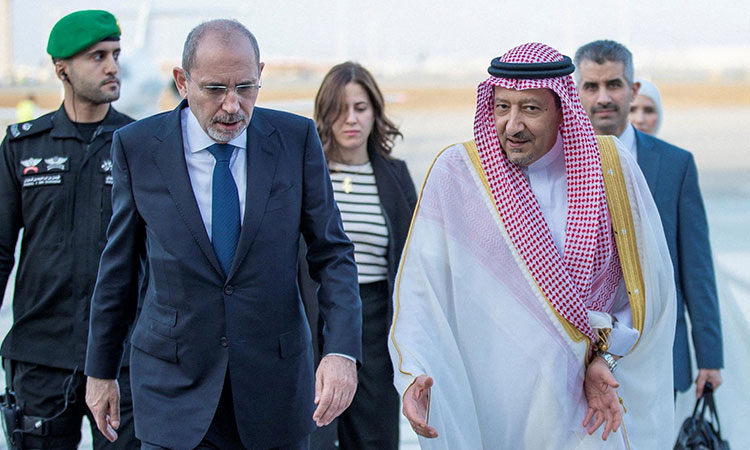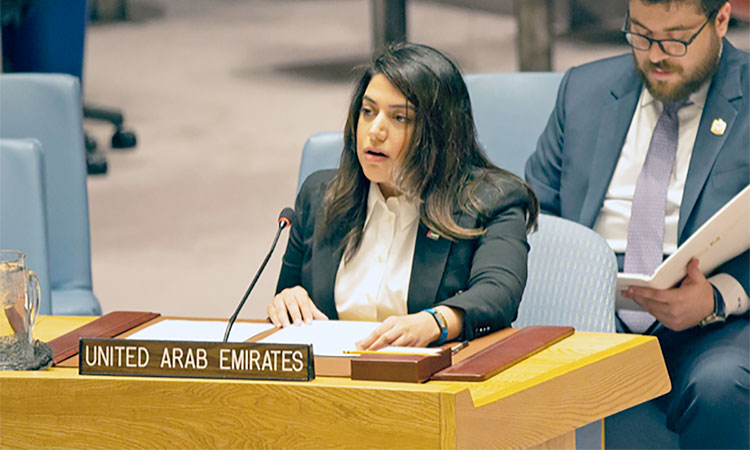Foreign intervention will prolong war: Arab League

Arab League members take part in an emergency meeting to discuss Libya in Cairo on Tuesday. Reuters
The Arab League’s council, its top body, met in Cairo after Egypt called for an emergency meeting on Libya, where eastern-based forces led by military commander Khalifa Haftar are trying to seize the capital Tripoli.
Turkey has said it will seek parliamentary support for sending troops to Libya, and senior Turkish sources have said Ankara is also considering sending allied Syrian fighters as part of the deployment.
A statement issued by the Arab League’s council warned of “the gravity of taking any unilateral steps in a manner that allows foreign military interventions and contributes to the escalation and prolongation of the conflict.”
“Regional interventions that help among other things in facilitating the transfer of foreign extremist fighters from other regional conflict zones to Libya” should be prevented, it said.
When the European Union (EU) started funnelling millions of euros into Libya to slow the tide of migrants crossing the Mediterranean, the money came with EU promises to improve detention centres notorious for abuse and fight human trafficking.
That hasn’t happened.
Instead, the misery of migrants in Libya has spawned a thriving and highly lucrative web of businesses funded in part by the EU and enabled by the United Nations, an Associated Press investigation has found.
The EU has sent more than 327.9 million euros to Libya, with an additional 41 million approved in early December, largely funnelled through UN agencies.
The AP found that in a country without a functioning government, huge sums of European money have been diverted to intertwined networks of militiamen, traffickers and coast guard members who exploit migrants.
In some cases, UN officials knew militia networks were getting the money, according to internal emails.
The militias torture, extort and otherwise abuse migrants for ransoms in detention centers under the nose of the UN, often in compounds that receive millions in European money, the AP investigation showed.
Many migrants also simply disappear from detention centers, sold to traffickers or to other centers.
The same militias conspire with some members of Libyan coast guard units.
The coast guard gets training and equipment from Europe to keep migrants away from its shores. But coast guard members return some migrants to the detention centers under deals with militias, the AP found, and receive bribes to let others pass en route to Europe.
The militias involved in abuse and trafficking also skim off European funds given through the UN to feed and otherwise help migrants, who go hungry.
For example, millions of euros in UN food contracts were under negotiation with a company controlled by a militia leader, even as other UN teams raised alarms about starvation in his detention center, according to emails obtained by the AP and interviews with at least a half-dozen Libyan officials.
In many cases, the money goes to neighbouring Tunisia to be laundered, and then flows back to the militias in Libya.
The story of Prudence Aimee and her family shows how migrants are exploited at every stage of their journey through Libya.
Aimee left Cameroon in 2015, and when her family heard nothing from her for a year, they thought she was dead. But she was in detention and incommunicado.
In nine months at the Abu Salim detention centre, she told the AP, she saw “European Union milk” and diapers delivered by UN staff pilfered before they could reach migrant children, including her toddler son.
Aimee herself would spend two days at a time without food or drink, she said.
In 2017, an Arab man came looking for her with a photo of her on his phone. “They called my family and told them they had found me,” she said. “That’s when my family sent money.”
Agencies







